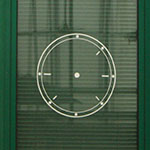Euroacademia Conferences
 Europe Inside-Out: Europe and Europeanness Exposed to Plural Observers (9th Edition) April 24 - 25, 2020
Europe Inside-Out: Europe and Europeanness Exposed to Plural Observers (9th Edition) April 24 - 25, 2020 Identities and Identifications: Politicized Uses of Collective Identities (9th Edition) June 12 - 13, 2020
Identities and Identifications: Politicized Uses of Collective Identities (9th Edition) June 12 - 13, 2020 8th Forum of Critical Studies: Asking Big Questions Again January 24 - 25, 2020
8th Forum of Critical Studies: Asking Big Questions Again January 24 - 25, 2020 Re-Inventing Eastern Europe (7th Edition) December 13 - 14, 2019
Re-Inventing Eastern Europe (7th Edition) December 13 - 14, 2019 The European Union and the Politicization of Europe (8th Edition) October 25 - 26, 2019
The European Union and the Politicization of Europe (8th Edition) October 25 - 26, 2019 Identities and Identifications: Politicized Uses of Collective Identities (8th Edition) June 28 - 29, 2019
Identities and Identifications: Politicized Uses of Collective Identities (8th Edition) June 28 - 29, 2019 The European Union and the Politicization of Europe (7th Edition) January 25 - 26, 2019
The European Union and the Politicization of Europe (7th Edition) January 25 - 26, 2019 7th Forum of Critical Studies: Asking Big Questions Again November 23 - 24, 2018
7th Forum of Critical Studies: Asking Big Questions Again November 23 - 24, 2018 Europe Inside-Out: Europe and Europeanness Exposed to Plural Observers (8th Edition) September 28 - 30, 2018
Europe Inside-Out: Europe and Europeanness Exposed to Plural Observers (8th Edition) September 28 - 30, 2018 Identities and Identifications: Politicized Uses of Collective Identities (7th Edition) June 14 - 15, 2018
Identities and Identifications: Politicized Uses of Collective Identities (7th Edition) June 14 - 15, 2018
Femininity as Performance in Carson McCullers’ ‘The Ballad of the Sad Café’, ‘The Member of the Wedding’ and ‘The Heart is a Lonely Hunter’
-
-

-
Presentation speakers
- Ioana Baciu, Alexandru Ioan Cuza University, Iași, Romania
- Download presentation
Abstract:
The central role of gender in shaping the identity of women in the United States during and after after World War II is reflected in literature in the novels of Carson McCullers. In exposing the fallacy of the prescribed gender binary, the writer resorts to the figures of the Freak and the Androgyne as liberating female alternatives to the constricting norms of Southern patriarchy. Throughout The Ballad of the Sad Café, The Member of the Wedding and The Heart is a Lonely Hunter, the role of femininity as traditionally understood in the South, under the guise of the Southern Belle, is deliberately deconstructed, genders are intertwined and scrambled, and the resulting dysfunctional relationships fail as a sign of society’s rejection of shifts in gender politics. Thus, McCullers’ most ‘feminine’ characters are tellingly either not female or too young to pick a gender, temporarily inhabiting the gender of their choice as an experiment in establishing an identity. The results are grotesque: The Ballad…’s Cousin Lymon, an unattractive hunchback, adopts the attention-seeking, narcissistic, ‘feminine’ behaviour of the belle, just as Baby, Biff Brannon’s five year-old niece, prances around town with salon-curled hair -a grotesque miniature of an adult woman. Teenage girls, especially, are confronted with the dilemma of deciding which gender to choose. An artificial construct ratified by society, femininity is a path not easily taken by the tomboyish Mick Kelly and Frankie Addams, who are aware that the limited options are either to renounce their real nature and become respectable young ladies, or to embrace their lack of femininity and be labelled as ‘Freaks’ (like the androgynous Miss Amelia Evans). Relying on Judith Butler’s theory of femininity as performance, the paper is concerned with highlighting the disparity between gender and sex, femininity and femaleness, in the Southern author’s fiction.
-
Related Presentations

Performing Disabled Sensorial Extension and Subversion
- Amanda Cachia

TBA
- Davide Bradanini

The Unbearable Lightness of Persepolis: The Allegorical Register of Melancholy and Nostalgia
- Eleftheria Rania Kosmidou
- Kate Corbin

The Audacity of Place
- Nkule Mabaso

Marx, Wittgenstein and the Idea of Social Criticism
- Lotar Rasiński













